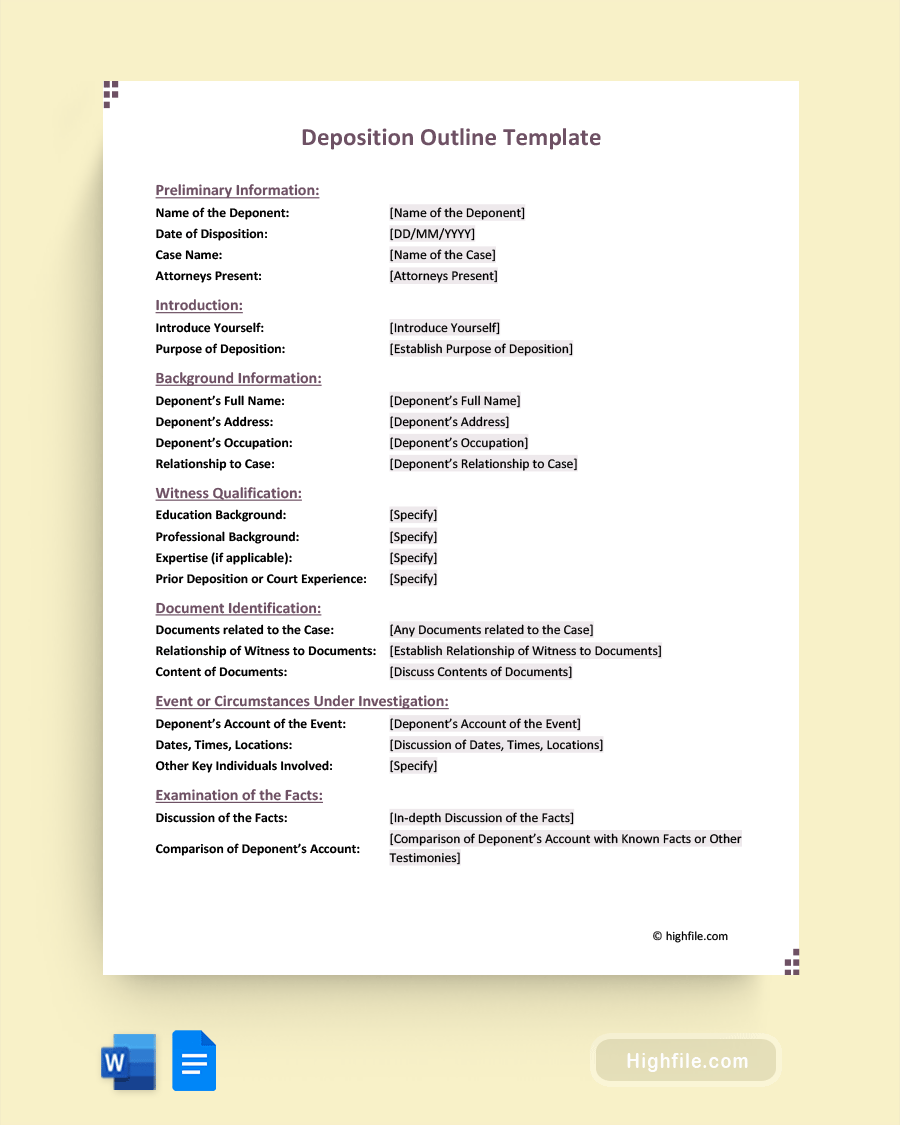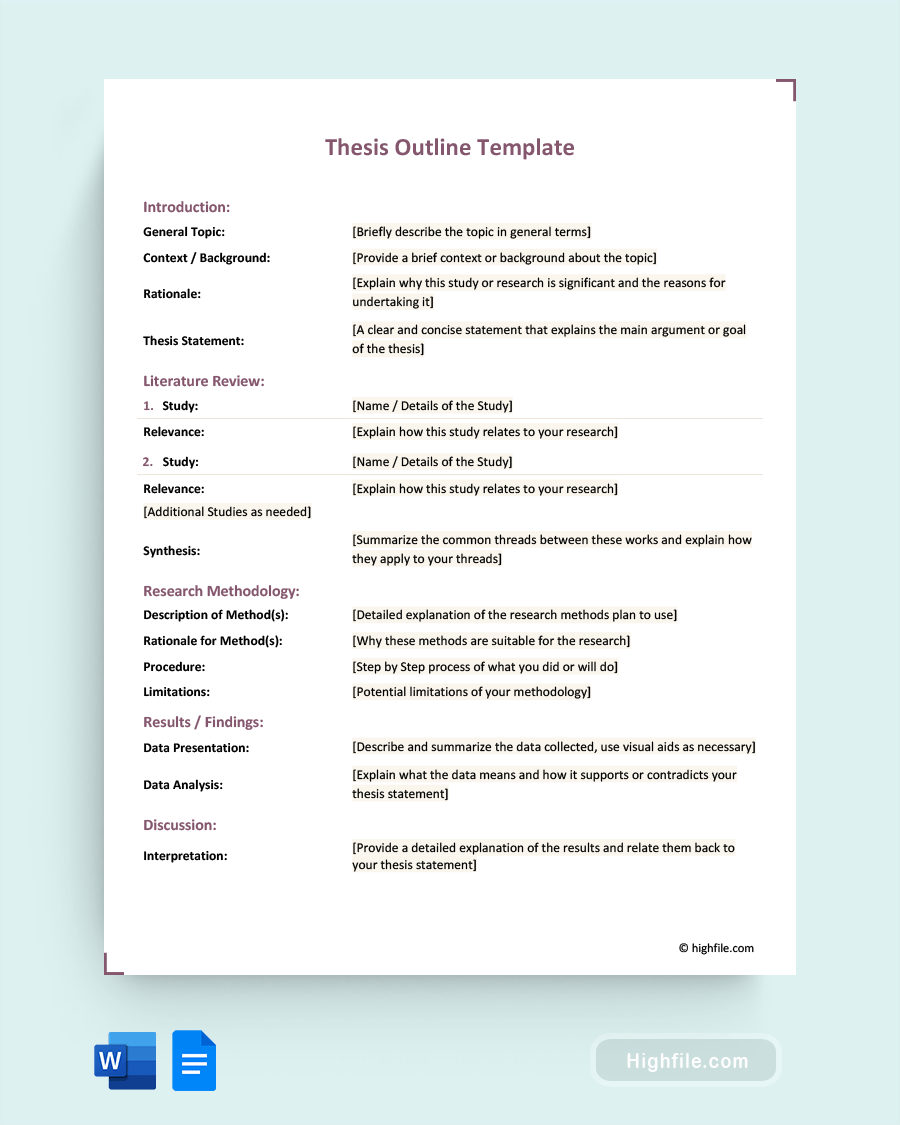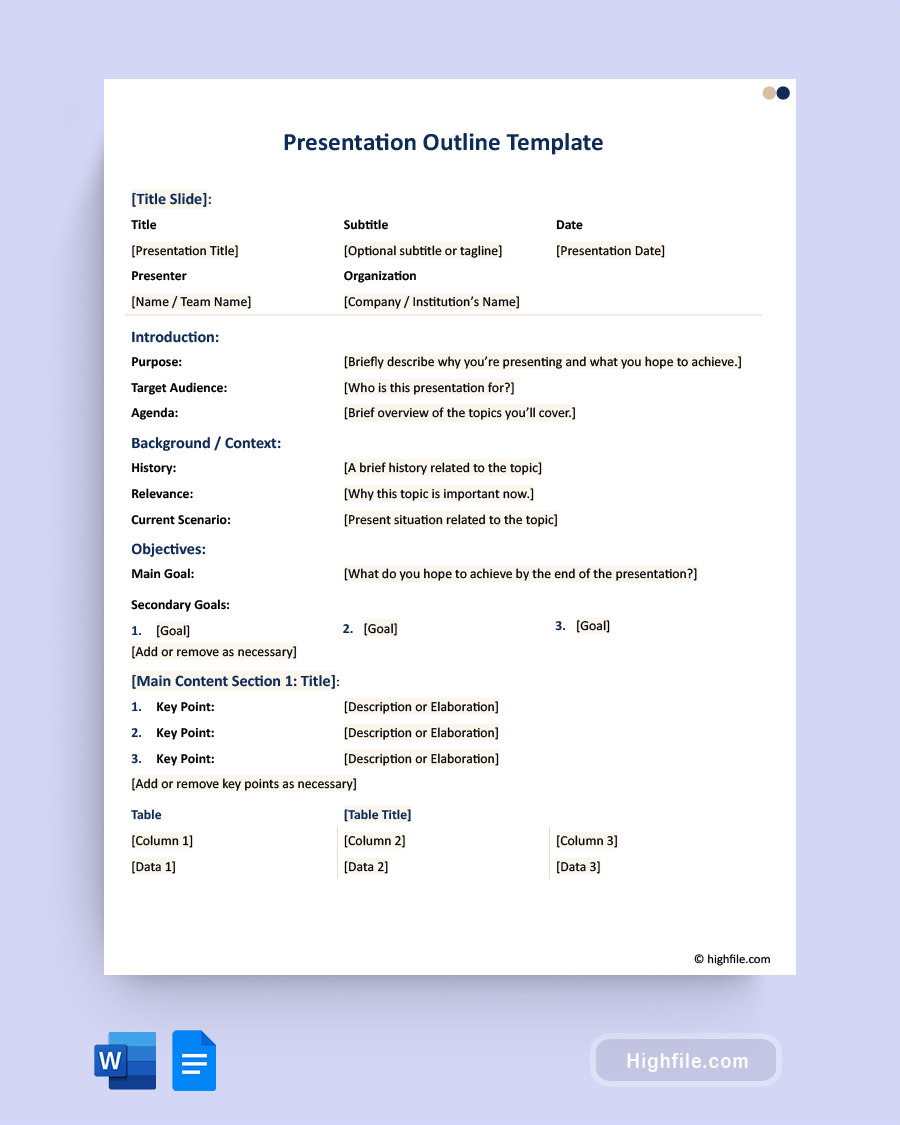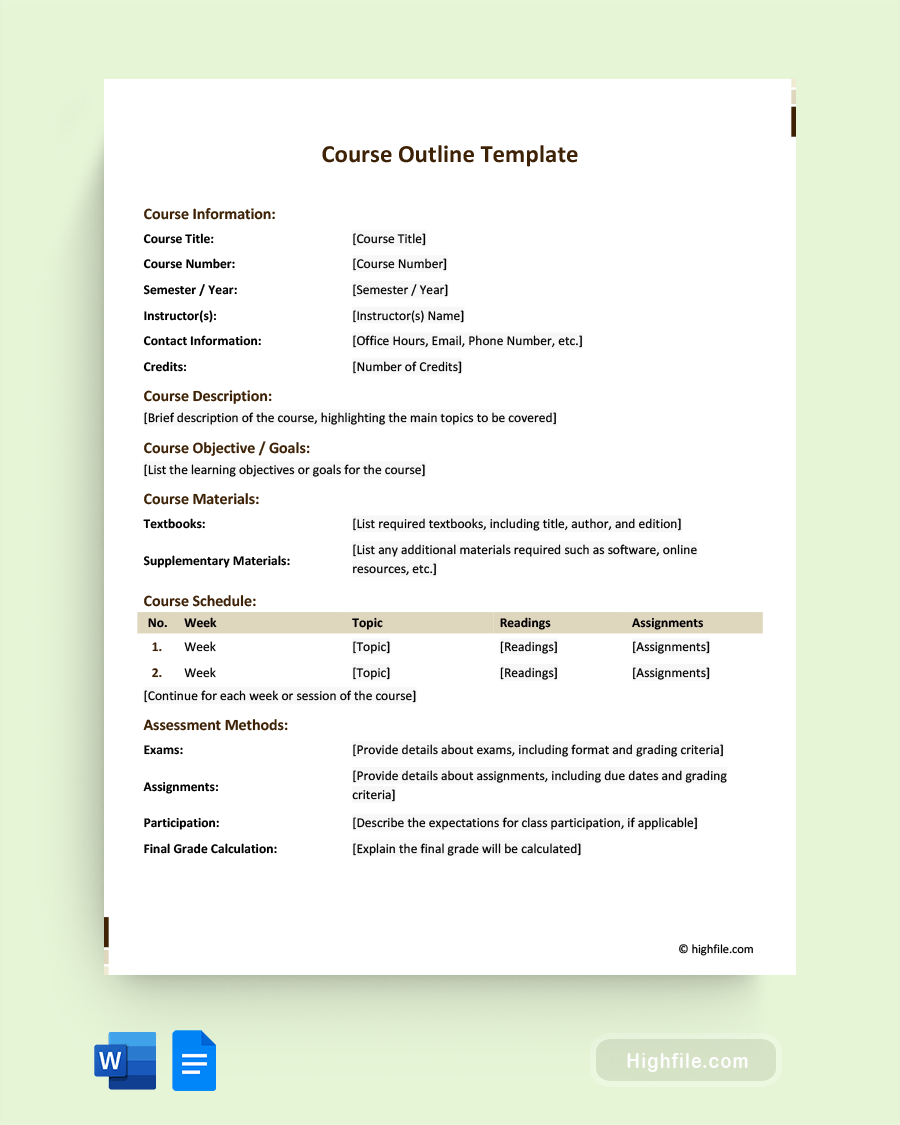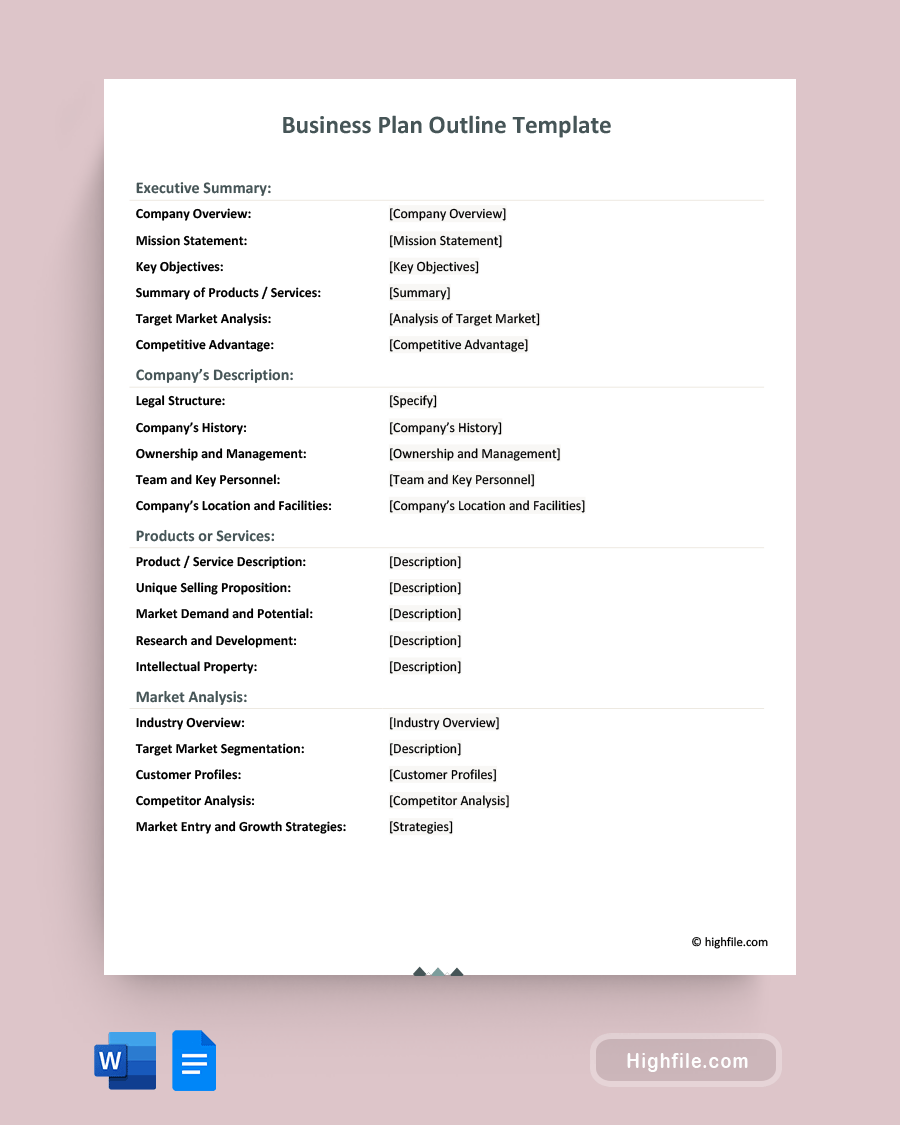Contents of the Template:
- Preliminary Information: Captures the basic details of the deposition, such as the name of the deponent and the date.
- Introduction: Provides a space for the user to introduce themselves and establish the purpose of the deposition.
- Background Information: Documents the deponent’s essential personal details and their relationship to the case.
- Witness Qualifications: Details the qualifications, education, and any special expertise the witness might hold.
- Document Identification: Focuses on identifying relevant case-related documents and the witness’s relationship to them.
- Event or Circumstances Under Investigation: Offers a structured approach to gather an account of the event from the deponent.
- Examination of the Facts: Delves deeper into the facts and compares the deponent’s account with known facts or other testimonies.
- Conclusion: Provides a segment to review, clarify, and make final remarks about the deposition.
Why Use This Template:
- Structured Approach: This template provides a clear and organized framework to ensure nothing important is overlooked.
- Consistency: Using this template ensures a consistent format for each deposition, making it easier to review and compare testimonies.
- Time-Saving: Instead of starting from scratch, attorneys can swiftly navigate through the template, ensuring a more efficient deposition process.
- Adaptable: The available formats, Word and Google Docs, make it easy to customize based on specific needs.
Ideal For:
- Legal Professionals: Whether you’re an experienced attorney or a paralegal in training, this template is designed to suit your needs.
- Court Reporters: Keeping an organized record of proceedings becomes significantly easier with this template.
- Law Students: Gaining practical insights and practicing deposition procedures using a professional format.
- Litigation Cases: Any situation where witness testimonies are required, from personal injury suits to complex corporate litigations.
